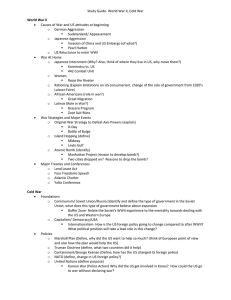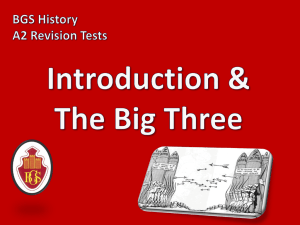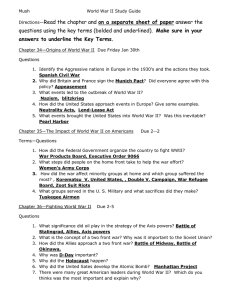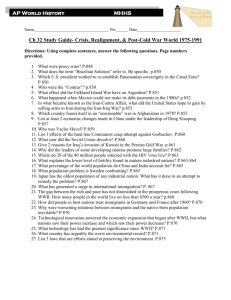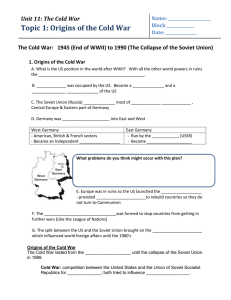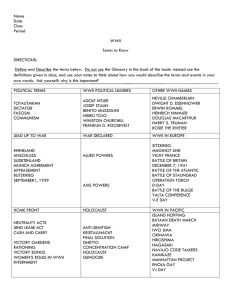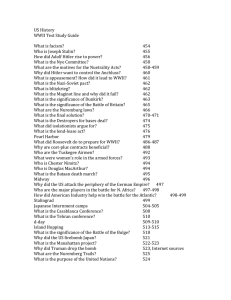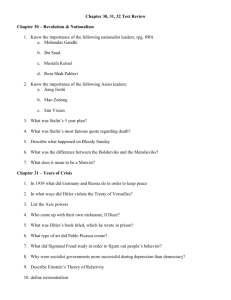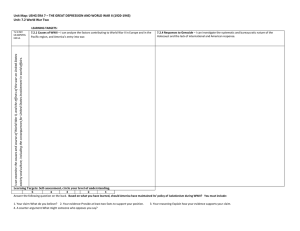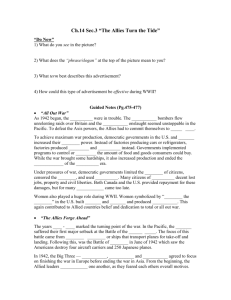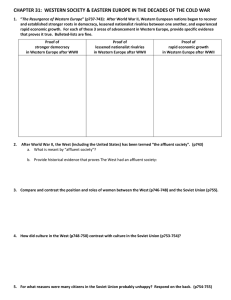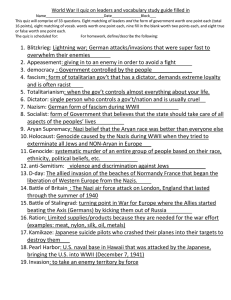WWII & End of European World Order Ch. 30
advertisement
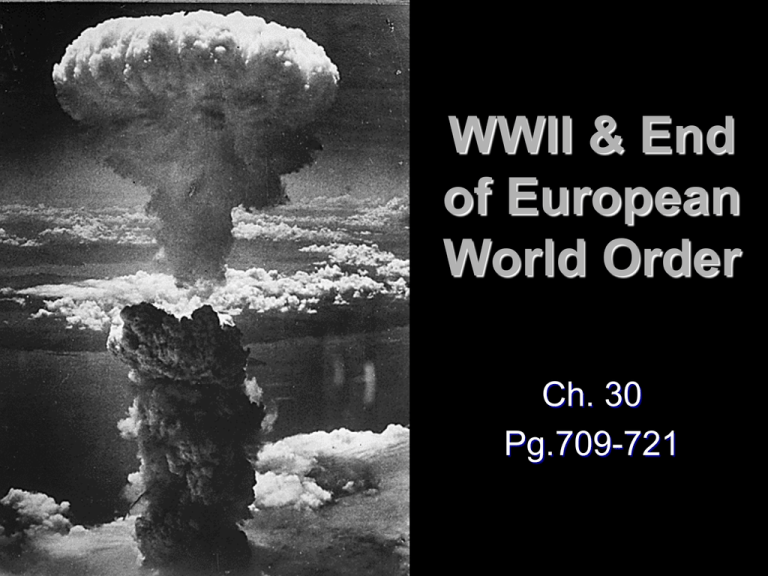
WWII & End of European World Order Ch. 30 Pg.709-721 Old & New Causes Economic disaster creates the right conditions for fascist & militarist groups to gain power Prospect of united China threatened Japanese imperialism ambitions Fascist nationalistic ambition fueled expansion & intervention against liberal republics Uniting German-speakers, Spanish civil war Inability of international organizations & Western powers to stop aggression Unchecked Aggression Local conflict raged long before official start to war in 1939 Japan: Efforts to control Manchuria → then China through brutal bombardment of coastal cities Germany: Rearms & gains control of German-speakers in Central Europe; divides remaining states with USSR – all w/o strong Western reaction ↳ WWII begins w/ invasion of Poland Conduct of WWII Nazi Blitzkrieg Lightning war of air force & tanks rapidly gained control of much of Europe & Mediterranean Western campaign stagnates with Battle of Britain Germany turns eastward to capture Soviet industries & natural resources USSR incurred heavy losses but repelled Germans starting long slow retreat The Holocaust 12 million undesirables exterminated 6 million Jews Others included homosexuals, gypsies, Polish intellectuals, political opponents Characterized by persecution, forced labor, inhumane medical experiments “Final solution” intensified w/ mounting battle losses End of Reich U.S. supported allied cause long before entering war Once in the war, U.S. provided key forces German shift to the east gives western allies space to launch offensive N. Af → Italy D-Day invasion of Normandy beaches → Battle of Bulge Allied victory inevitable Japan & Pacific Theater After China, Japan captured SE Asia & European colonial possessions for raw materials, oil, food stuffs 1941 – Pearl Harbor attack draws U.S. into war U.S. initially engaged in “island-hopping” pushing Japan from outer island fortresses U.S. later strikes at core (Iwo Jima, Okinawa, Tokyo) 1945 – Atomic bombs brought dramatic end to war WWII Ends… Superpower Standoff Begins Germany & Japan forced to accept unconditional surrender (although Japan maintains emperor) Sought to avoid vengefulness of WWI United Nations created international diplomacy rather than one dominated by West Labor protection, famine relief, women’s rights, environmental protection, peacekeeping Cold War Tension b/t 1945 & 1990, but no direct conflicts b/t emerging Soviet & U.S. superpowers Tensions rise at a series of conferences as USSR sought to maximize gains vs. West Yalta Potsdam Korea divided into 2 zones—US & Soviet occupied Colonies restored to European control, but nearly immediate decolonization heightened Cold War politics as each colony gets independence
